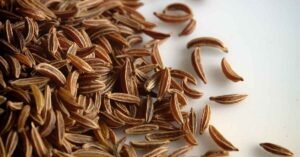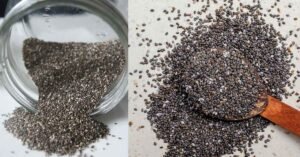
Constipation before period is a common issue faced by many women. This discomfort can often be frustrating, but it’s important to know why it happens and how to manage it. In this comprehensive post, we’ll explore the causes of constipation before your period, symptoms, effective home remedies, do’s and don’ts, and much more. We’ll also address frequently asked questions (FAQs) and offer tips for relief.
What is Constipation?
Constipation is when you have fewer bowel movements than normal or when passing stool becomes difficult due to its hardness. While some may go several days without a bowel movement, others may go daily but still feel backed up. Constipation can leave you feeling bloated, crampy, and uncomfortable.
Understanding the Connection Between Menstruation and Constipation
The days leading up to your period, also known as the luteal phase, can come with several digestive issues, including constipation. This phase occurs after ovulation and lasts until your period starts. But why do bowel habits change during this time?
Hormonal Changes
One of the main reasons for constipation before your period is hormonal fluctuations. Two hormones, estrogen and progesterone, play a significant role.
- Progesterone increases after ovulation. This hormone can relax your muscles, including those in your digestive system. As a result, your intestines may work more slowly, causing stools to move more sluggishly through your system.
- Estrogen levels drop right before your period. Estrogen helps keep water in your body. When it drops, your body may lose more water, leading to harder stools and dehydration, which can worsen constipation.
Prostaglandins
Prostaglandins are hormone-like substances that your body releases before menstruation to help the uterus contract and shed its lining. While prostaglandins target the uterus, they can also affect the intestines, causing cramps, bloating, and irregular bowel movements.
Water Retention and Bloating
Many women experience bloating before their period. Water retention is common during this phase due to hormonal changes. This extra fluid buildup can press on the intestines, making it harder for stools to pass through easily.
Symptoms of Constipation Before Period

If you’re experiencing constipation before your period, you might notice the following symptoms:
- Hard, lumpy stools
- Infrequent bowel movements (fewer than three times per week)
- Straining during bowel movements
- Bloating and discomfort
- Abdominal cramps
- A feeling of incomplete evacuation
Home Remedies for Constipation Before Your Period

Several simple home remedies can help you manage constipation before your period and keep your digestive system healthy. Here are some effective options:
1. Warm Water and Lemon
Drinking warm water with lemon first thing in the morning helps stimulate the digestive system. Lemon acts as a mild natural laxative and can encourage bowel movements.
2. Prune Juice
Prunes are a natural laxative due to their high fiber content and the presence of sorbitol, a compound that helps soften stools. Drinking a small glass of prune juice or eating prunes daily can help relieve constipation.
3. Flaxseeds
Flaxseeds are an excellent source of fiber and healthy fats. They help improve bowel regularity and can reduce inflammation. Mix a tablespoon of ground flaxseeds into your smoothie, yogurt, or oatmeal.
4. Aloe Vera Juice
Aloe vera juice has mild laxative properties. It can help ease constipation by promoting the smooth passage of stools through your intestines. Drink a small glass of aloe vera juice on an empty stomach for the best results.
5. Apple Cider Vinegar
Apple cider vinegar can stimulate digestion and help alleviate constipation. Mix one tablespoon of apple cider vinegar in a glass of warm water and drink it before meals to encourage bowel movements.
Do’s and Don’ts for Managing Constipation Before Your Period
Following certain habits can improve your digestive health, especially in the days leading up to your period. Here’s a list of what to do and what to avoid:
Do’s
1. Stay Hydrated
Drinking plenty of water is essential for preventing constipation. When your body is hydrated, it helps keep your stools soft and easier to pass. Aim for at least 8 glasses of water per day, but you may need more if you feel bloated or dehydrated before your period.
2. Eat More Fiber
Adding fiber-rich foods to your diet can help regulate your bowel movements. Fiber adds bulk to your stool, making it easier to pass. Some fiber-rich foods to include are:
- Fruits like apples, pears, and berries
- Vegetables like broccoli, carrots, and spinach
- Whole grains like oats, brown rice, and whole wheat bread
- Legumes like beans, lentils, and chickpeas
Try to incorporate these foods into your meals, especially in the week leading up to your period.
3. Stay Active
Exercise is a great way to help your digestive system function properly. Regular movement helps stimulate the muscles in your intestines, promoting healthy bowel movements. Activities like walking, yoga, or even light jogging can make a difference.
4. Consider Magnesium Supplements
Magnesium is known to help with bowel movements by relaxing your digestive muscles and drawing water into the intestines. Taking a magnesium supplement during the luteal phase of your cycle can provide relief from constipation. However, consult your doctor before starting any supplements.
- Use a Squat Position for Bowel Movements: Squatting or raising your feet while on the toilet can make it easier to pass stools. Using a stool to prop up your feet is a simple way to achieve this position.
- Practice Relaxation: Stress can affect your digestion, so take time to relax. Breathing exercises, meditation, or yoga can help manage stress and improve digestive health.
Don’ts
- Avoid Processed Foods: Processed foods often lack fiber and can slow down digestion. Avoid foods high in refined sugars and white flour, such as pastries, fast food, and chips.
- Limit Caffeine and Alcohol: Both caffeine and alcohol can dehydrate your body, leading to harder stools and worsening constipation.
- Don’t Ignore the Urge: If you feel the need to go, don’t delay. Ignoring the urge to have a bowel movement can make constipation worse over time.
- Avoid Too Much Dairy: Some people find that dairy products like cheese and milk can make constipation worse. If this happens to you, try cutting back on dairy before your period.
When to See a Doctor

Most cases of pre-period constipation resolve on their own once your period starts. However, if you experience the following symptoms, it may be time to seek medical advice:
- Constipation lasting more than three weeks
- Severe abdominal pain or cramps
- Blood in your stool
- Unexplained weight loss
- Nausea or vomiting
A doctor may recommend further tests to rule out underlying health issues such as irritable bowel syndrome (IBS) or endometriosis.
Conclusion
Constipation before your period is a common and manageable condition. It is primarily caused by hormonal fluctuations in progesterone and estrogen, which slow down digestion. However, with the right home remedies, dietary changes, and lifestyle habits, you can relieve constipation and maintain good digestive health.
By drinking plenty of water, eating fiber-rich foods, exercising, and managing stress, you can alleviate pre-period constipation. Following the do’s and don’ts will also help you avoid constipation in the future. If your symptoms persist or worsen, consult a healthcare provider to rule out any serious underlying conditions.
FAQs about Constipation Before Period
Let’s address some of the most commonly asked questions people search for online about constipation before their period.
1. Can PMS cause constipation?
Yes, constipation can be a symptom of premenstrual syndrome (PMS) due to hormonal fluctuations that affect digestion.
2. Why do I get constipated before my period?
Constipation before your period occurs because of a rise in progesterone, which slows down muscle contractions in the intestines, making digestion slower.
3. Does my diet affect constipation before my period?
Absolutely! A diet low in fiber and high in processed foods can contribute to constipation. Increasing your intake of fiber-rich foods and water can help.
4. Can taking birth control help with constipation before my period?
Hormonal birth control may help regulate symptoms of PMS, including constipation, by stabilizing hormone levels. However, consult your doctor for the best option.
5. How can I prevent constipation before my period?
To prevent constipation, eat plenty of fiber, stay hydrated, exercise regularly, and manage stress. These habits promote healthy digestion and bowel movements.
6. Is it normal to have diarrhea after constipation before my period?
Yes, it is common for some women to experience alternating constipation and diarrhea before their period. This fluctuation is due to hormonal changes.
7. Can stress make constipation worse before my period?
Yes, stress can slow down digestion and worsen constipation. Practicing relaxation techniques can help reduce this impact.














